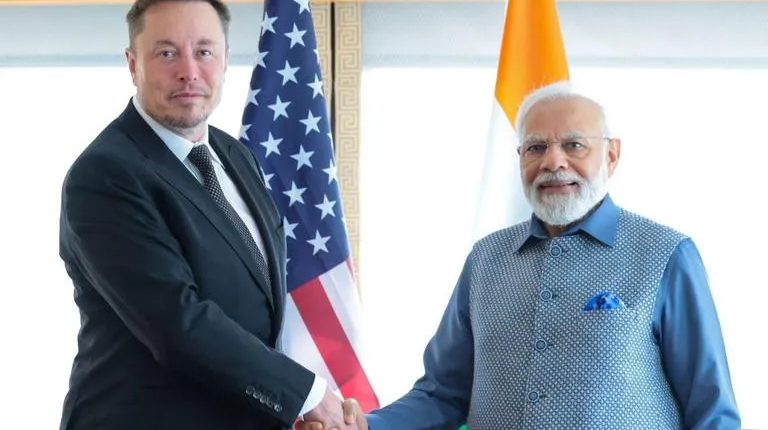Tesla and SpaceX CEO Elon Musk announced his intentions to invest in India and bring his EV company Tesla and Starlink, the groundbreaking satellite internet project, to the country. With a recent conversation between Musk and Indian Prime Minister Narendra Modi described as “very good,” the prospects of this collaboration are generating significant excitement. The introduction of Starlink in India has the potential to revolutionize the country’s connectivity landscape and bridge the digital divide, offering high-speed internet access to remote and underserved areas.
In fact, the Indian PM seems to have extended an invitation to the billionaire to visit India (which is likely to happen next year), and Musk noted that he is hopeful that they will be able to “announce something in the not-too-distant future.”
Bringing Tesla to Indian users will benefit the company and India alike – especially since it comes at a time when the Indian automobile market has a potential for growth. Despite India’s EV market being in its nascent stage, the government is striving to increase the adoption of EVs in the country with incentives and the efforts homegrown enterprises like Ola Electric. The country has set an ambitious target of having 30% of its vehicles run on electricity by 2030, and Tesla’s investment in the country is likely to help immensely in this regard. “I am confident that Tesla will be in India and will do so as soon as humanly possible,” Musk said.
“I can say he really wants to do the right thing for India. He wants to be open, he wants to be supportive of new companies, obviously, but at the same time, make sure it accrues to India’s advantage,” the Tesla and SpaceX CEO said after the meeting, which came during PM Modi’s state visit to the US. He added that the Indian market had “more promise” than any large country in the world.
No specific timeline as to when Starlink will be coming to India was offered, and Musk said that they were trying to determine the “right timing.” Starlink did have a presence in India – SpaceX had set up a wholly-owned subsidiary in the country two years ago. Soon after, however, the Indian government warned the public against signing up for Starlink since it lacked the license to operate in the South Asian market. Starlink later offered refunds on pre-orders in India.
India is home to a vast population, with a significant portion residing in rural areas where traditional internet infrastructure is limited. Starlink’s satellite-based network has the potential to address these gaps, ensuring that every corner of the country can benefit from seamless internet connectivity. By extending its coverage to remote and underserved regions, Starlink could play a crucial role in bridging the digital divide and fostering digital inclusivity. Musk noted this, saying that Starlink could be “incredibly helpful for sort of remote or rural villages where they perhaps either may have no access to the Internet or the Internet is very expensive and slow.”
The technology’s ability to offer connectivity without the need for extensive ground-based infrastructure is likely to accelerate digital inclusion and enable access to vital services like education, healthcare, and e-commerce. This, in turn, could unlock new possibilities for entrepreneurs, small businesses, and startups by providing them with access to global markets and a level playing field.





